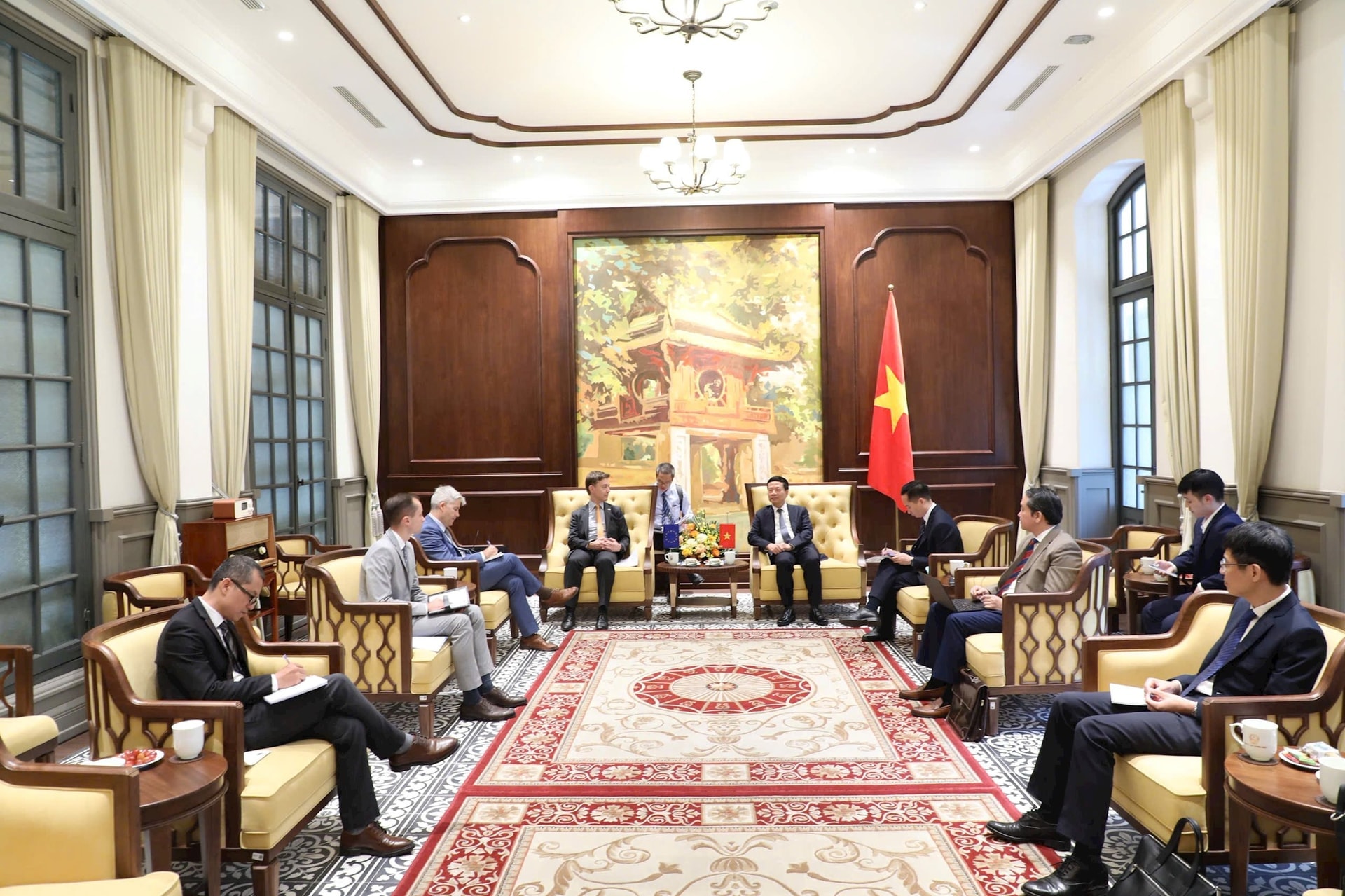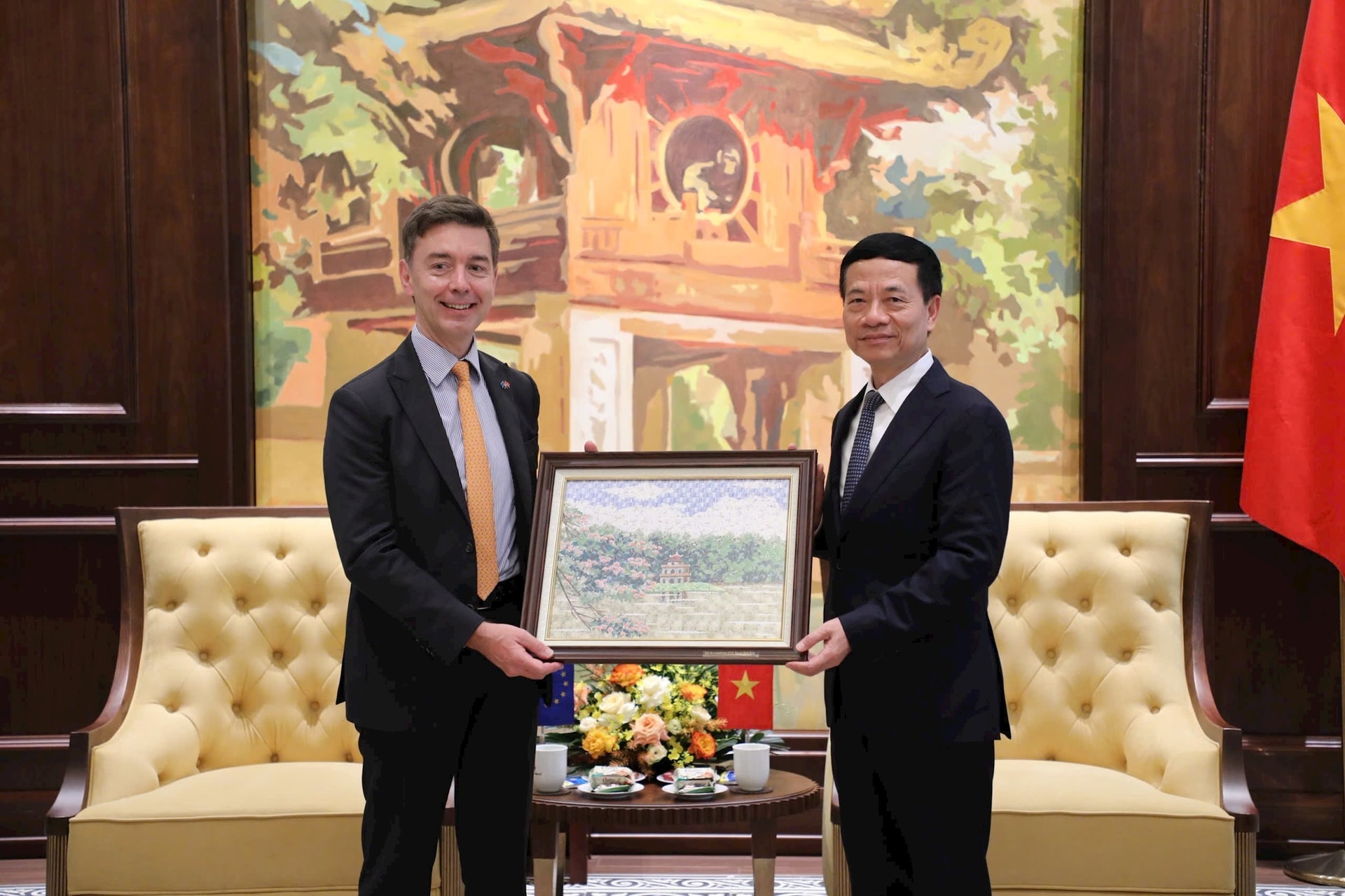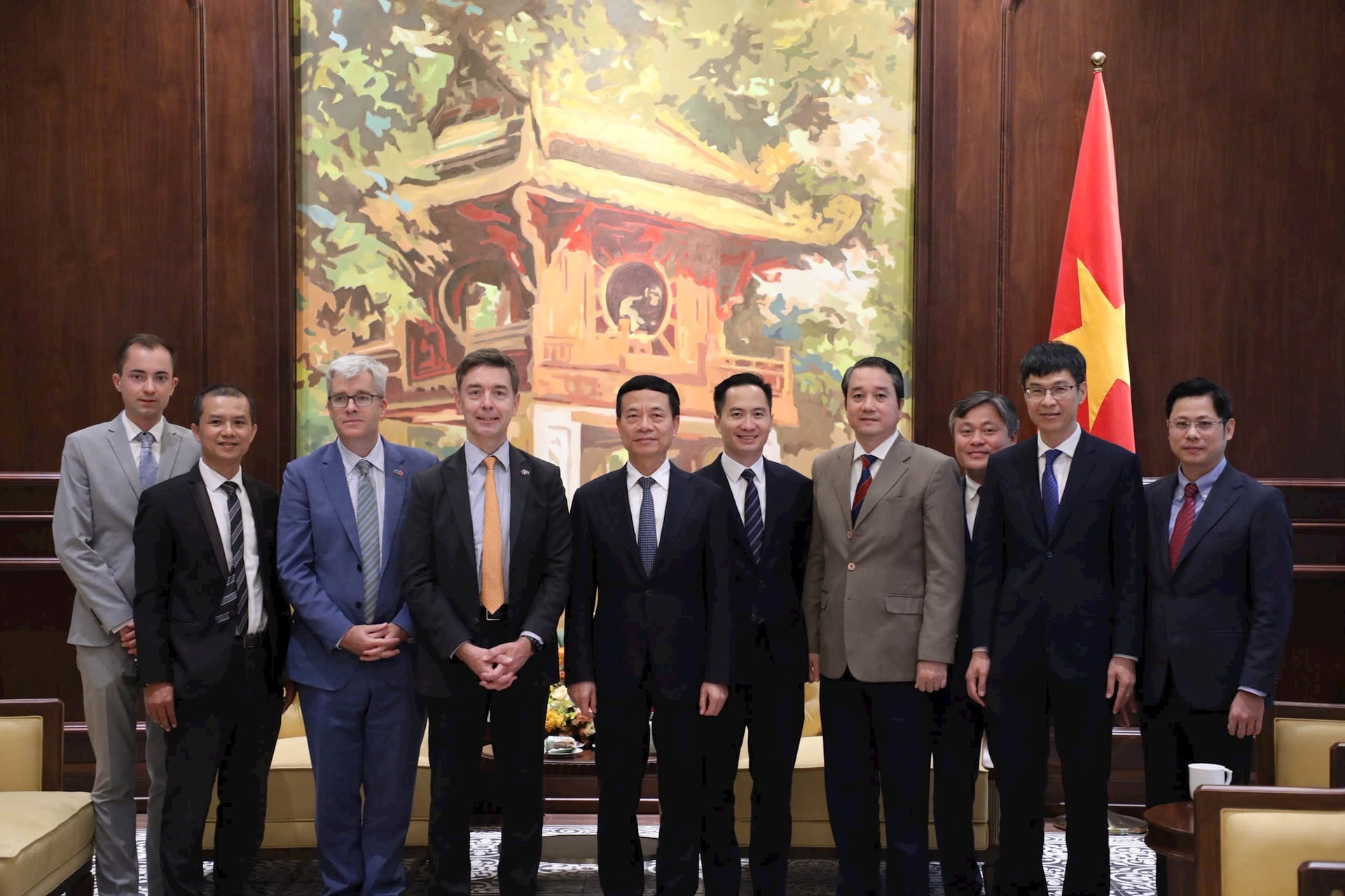Vietnam - EU expand cooperation in science, technology, and innovation
Minister of Science and Technology Nguyen Manh Hung emphasized that international cooperation is a key driver for developing the science, technology, and innovation ecosystem.
Establishing a framework for long-term cooperation
On the morning of September 17, 2025, in Hanoi, Minister of Science and Technology (MST) Nguyen Manh Hung met with Mr. Julien Guerrier, Ambassador of the European Union (EU) to Vietnam, and his delegation.
The Minister affirmed that Vietnam considers international cooperation a crucial driver for developing the science, technology, and innovation (STI) ecosystem.

According to the Head of MST, many major policy decisions have been enacted, such as: Resolution 57 of the Politburo on breakthroughs in S&T development, innovation, and digital transformation; Resolution 193 of the National Assembly on special policies; Law on Science, Technology and Innovation; Law on Digital Technology Industry; Law on Technical Standards and Regulations; along with the Prime Minister's decision on the list of strategic technologies. These form a vital legal basis, creating conditions to attract foreign investment, develop high-quality human resources, and promote key technologies.
On that basis, the Minister proposed that both sides promptly sign a Letter of Intent on cooperation in science, technology, innovation, and digital transformation, while also developing an Action Plan that specifies priority areas, coordination mechanisms, co-funding, and implementation timelines. At the same time, he expressed hope that the EU would recognize Vietnam as a co-funding country in the Horizon Europe Program, thereby supporting domestic research groups in participating in large-scale projects and increasing the success rate in the SEA-EU Joint Funding Scheme (JFS). Vietnam is committed to streamlining processes within the Ministry’s authority to the fullest extent and promptly reporting to the Government on matters beyond its authority to expedite the realization of the agreement.
Broadening the scope of cooperation: from AI, semiconductors to standards and atomic energy
The EU Ambassador expressed his impression with the dynamism and optimism of Vietnam's youth - a quality he believes Europe lacks and a crucial complementary condition for successful cooperation.

The Ambassador announced that the EU will organize three major events in late October: a Conference on Semiconductors, Artificial Intelligence, 5G and 6G in Ho Chi Minh City; the EU-Vietnam Digital Cooperation Forum; and the Vietnam-EU Research & Innovation Day in Ninh Binh. Mr. Julien Guerrier hoped that the Ministry of Science and Technology would coordinate the organization and convey information to domestic universities and research institutes about opportunities to participate in the Horizon Europe program, especially projects under the "Horizon Europe" initiative.
Speaking at the meeting, the EU Ambassador emphasized: "A very potential area for us to strengthen cooperation is to jointly develop new technical standards. I am confident this is an open door for EU businesses and institutions to introduce new technologies from the EU to Vietnam".
The EU also proposed intensifying standard cooperation in three strategic areas: high-speed rail, atomic energy, and 5G telecommunications. The Ambassador stressed that this is a "gateway" for European businesses and institutions to introduce new technologies in Vietnam, while also helping Vietnam rapidly complete 40 standards for the high-speed rail project, ensure nuclear safety, and standardize 5G infrastructure. He also encouraged to increase cooperation in building cyber safety standards, data security, as well as standards for smart cities and online public services.
Regarding knowledge transfer, the Ambassador pointed out that both EU and Vietnam face challenges in commercializing research outcomes, and proposed organizing in-depth workshops and inviting EU experts to Vietnam to share experiences. He welcomed Vietnam's initiative to establish a National Venture Capital Fund, noting that in the EU, state capital serves only as a catalyst, while the private sector managing the funds. He also encouraged EU innovation centers and investment funds to open branches and link with Vietnamese funds to support startups and creative entrepreneurship on both sides.

The Minister affirmed Vietnam's desire for comprehensive and deep cooperation in telecommunications, not only importing equipment but also joint research and development of services, and considering the possibility of negotiating for reduced roaming charges between Vietnam and the EU. He also requested the EU to continue supporting Vietnam in perfecting its standards system for developing the digital technology industry, online public services, green energy, and other digital transformation fields.
In the atomic energy sector, the Minister highly valued the potential for cooperation, especially in human resource training, safety management, and new technology research. The Head of MST proposed that EU would support the establishment of a joint laboratory that applies EU and IAEA standards, and share experiences in partner selection, incident response, and sustainable operation.
The EU Ambassador expressed readiness to coordinate and announced plans to hold a ceremony to introduce an early warning system of nuclear safety in Vietnam in November 2025, viewing this as the start of long-term cooperation.
Concluding the meeting, both sides affirmed that science and technology, innovation, digital transformation, standards-metrology-quality, intellectual property, and atomic energy will be the pillars in the process of upgrading Vietnam-EU relations. The Minister emphasized that Vietnam prioritizes signing the Letter of Intent as soon as possible, considering it an important first step for cooperation initiatives to be quickly implemented, advancing bilateral cooperation into a substantive and in-depth development phase, aligned with the goals of sustainable growth and international integration.

